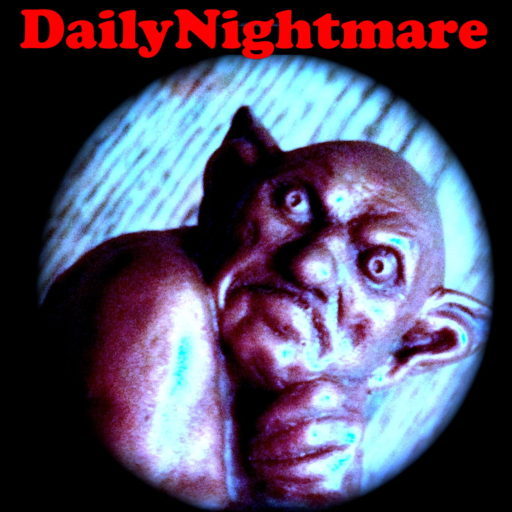We’re afraid of zombies. Or at least peculiarly fascinated with them at the moment. Add up the zombie-related nightmares that appear on this site, the zombie-related movies and games of recent years, the zombie-flash-mobs that have occurred in Toronto, San Fransisco… heck just about everywhere in North America. Those cold-hearted crypt creepers are hot.
Zombies are the perfect enemy. They don’t have any of those irritating human qualities that real enemies possess. Sure they look human enough but when it comes down to things, they’re dead and they won’t stop until we’re dead too. Don’t waste compassion on them; once they’ve changed they can’t change back. You can’t brainwash a zombie into not craving brains. Nobody seems to question the absolute right of self-protection so we can kill them without a twinge of moral regret. Zombies are the perfect metaphor for “the bad guys” during wartime.
But I don’t think that’s why they’re scary.
We’re afraid of zombies, because we’re afraid the zombies are us. Forgive this rehearsal of obvious information, and these qualities are the same for slow-moving, original style, Pittsburgh zombies (Romero’s “Night of the Living Dead“) or speed-freak, extra crispy zombies (“28 Days Later“):
- zombies are mobs, un-individuated groups;
- zombies consume voraciously, mindlessly;
- zombie-ism has no internal mechanism to limit itself. The “zombie-lifestyle” is excessive and exhaustive. It will not stop until there is nothing left alive;
- zombies have pure desire. It is not complicated by dogma or propaganda. There is no zombie religion; no zombie government.
Looking through the mirror of metaphor at the everyday world, zombies could be seen as a critique of rampant consumerism. We respond to the stimulus to buy, buy, buy quite brainlessly, without much consideration for our own fate or that of anyone else. This lack of limiting concern is NOT a “liberal thing,” either. Zombies can be depicted as a critique of capitalism in general but the brainless consumption portrayed by zombies also runs afoul of the old-time conservative values of thrift and frugality. Fiscal conservatives cringe at the prospect of a generation of folks who max out their credit cards while saving nothing for retirement. Who will cover all that defaulted debt when those self-indulgent hordes grow too old to work at McDonalds? The liberal spin on zombie consumption emphasizes the human degradation of near-cannibalism as mobs of once-humans feast on current humans, leading up to total environmental collapse.
While none of the zombie traits are laudable, perhaps that collection of qualities particularly grates against American values, especially individualism and “puritan” self-restraint. Zombies are post-human masses who seek to wipe out individuality. Americans cherish the notion that somehow maverick individuality is what made us what we are. Zombies threaten that identity, a fate worse than death. Zombies also are non-critically self-indulgent. Whether left-ish or right-ish, Americans tend to distrust indulgence, ironically enough while acting quite self-indulgent and privileged. However, we have elaborate justifications of our indulgences.
Zombies might be so scary because they’re what we see in the mirror.
